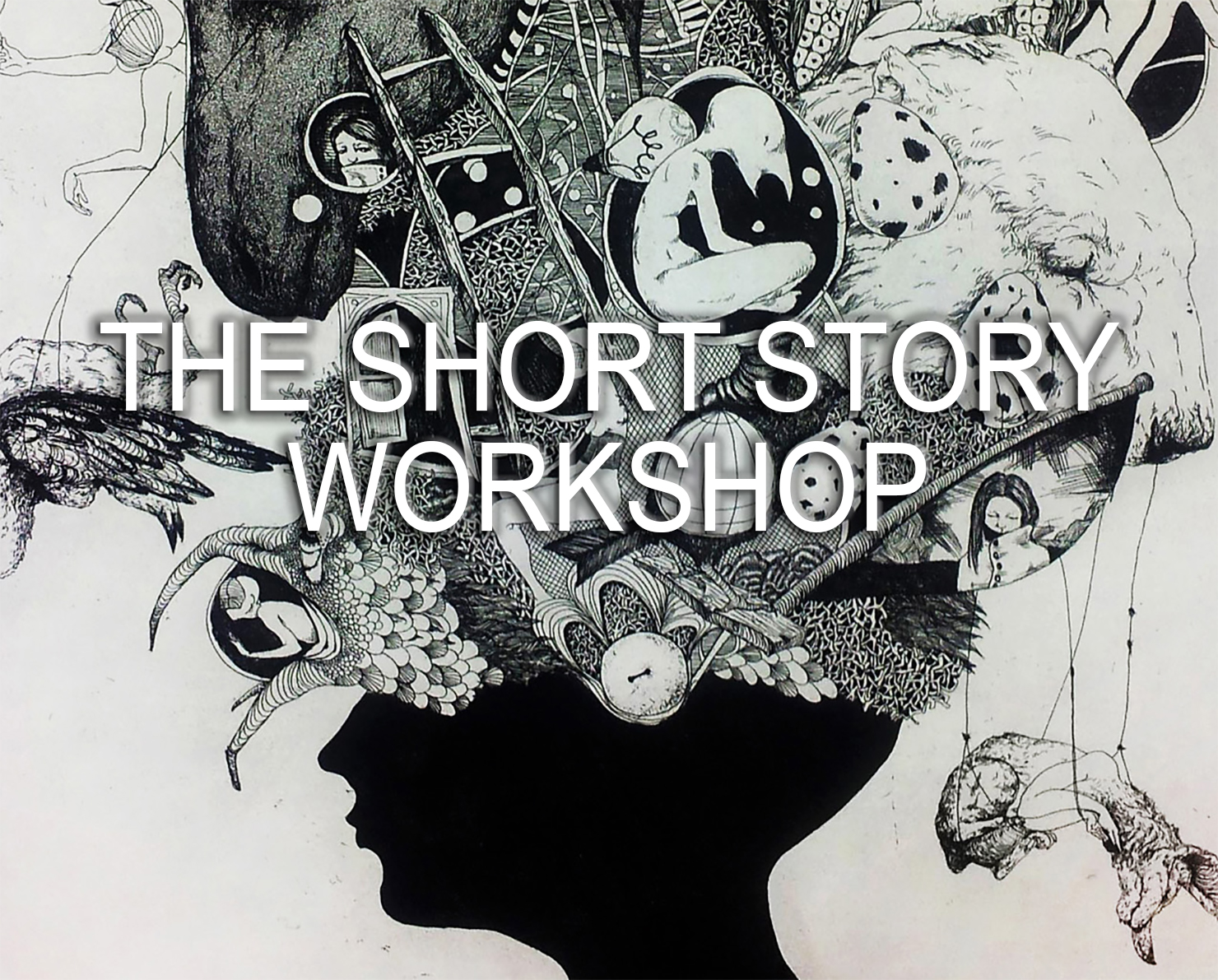In the Short Story Workshop, we will study what constructs the world of the short story: pain, happiness, fear, love, desire, anger, and menace. You will write your characters, settings and scenes with a focus on your organic voice and style. This workshop is for character-focused craft and storytellers. Our focus will be on narratives that grip and immerse readers at an unflinching level while understanding the differences between what is essential and what is gratuitous. With a focus on scene work and how to build a short story through the nucleus of the scene, writers will explore their organic voices and styles. Join us and improve your craft as the weeks progress by giving and receiving feedback, the cornerstone of exploring your own strengths, needs and preferences.
In many of the below lessons, we encourage you to use short stories and scenes you’ve already created. If you would like to create a new short stories and scenes first, please explore at our 30 Stories in 30 Days Workshop, where you can pick and choose writing prompts.
Short Story Writing Goals
-
- To read a variety of scenes from contemporary short stories and examine the fiction techniques used by short story writers to engage readers;
- To generate drafts of prose scenes with compelling characters and narrative tension, scenes that you may want to later develop into complete stories;
- To explore tone, tension, catharsis, humor, poetic language and more within the short story form;
- To excavate personal essays for organic scene material;
- To receive feedback on your writing so that you can accomplish your objectives for scenes and be better prepared to revise your work to make it the best it can be;
- To strengthen your writing craft by honing your analytical skills and providing constructive feedback on others’ work;
- To help you further strengthen your knowledge of narrative forms and to provide you with the environment to better understand your individual voice so that you can apply this to future works;
- To help you learn writing skills and improve your craft so that you are better equipped to edit your own work as you continue to write scenes, complete short stories and submit your work for publication.
Suggested Short Story Resources
The Age of Insight: The Quest to Understand the Unconscious in Art, Mind, and Brain, from Vienna 1900 to the Present. Eric Kandel.
A Handbook to Literature
“Cogito et Histoire de la Folie.” Jacques Derrida.
Cognitive Neuropsychology Section, Laboratory of Brain and Cognition.
Eats Shoots and Leaves: The Zero Tolerance Approach to Punctuation
The Elements of Style.
New Oxford American Dictionary
The Norton Anthology of World Literature
The Norton Introduction to Philosophy
Woe is I: The Grammarphobe’s Guide to Better English in Plain English
Writing Fiction: A Guide to Narrative Craft
Writing the Other
Contributing Faculty
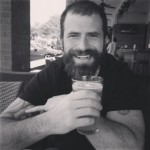
Benjamin Schachtman’s short stories and other work have been most recently published in The Dig Boston, Confngo (UK) and The Bad Version. He received his MA in English and American Literature from NYU, and is completing his PhD in English Literature at SUNY Stony Brook. He has designed and taught writing courses – centered on sentence-level command of tone and style – for both Stony Brook and Manhattan College. He recently moved to North Carolina to continue work on his next novel; his debut manuscript is being represented by the Alice Speilberg Literary Agency. He is the fiction editor and Sergeant at Arms for Anobium Literary. Visit him at Anobiumlit.com and BenjaminSchachtman.com.
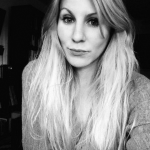 Kristen Clanton was born and raised in Tampa, Florida, where she currently works as a professor of English and writing and welder’s apprentice. She graduated from the University of Nebraska with an MFA in poetry. Her poetry and short stories have been published in the Bicycle Review, Burlesque Press, MadHat Drive-By Book Reviews, MadHat Lit, Midnight Circus, Ragazine.cc, and Sugar House Review. She also has a story in the upcoming issue of The Outrider Review.
Kristen Clanton was born and raised in Tampa, Florida, where she currently works as a professor of English and writing and welder’s apprentice. She graduated from the University of Nebraska with an MFA in poetry. Her poetry and short stories have been published in the Bicycle Review, Burlesque Press, MadHat Drive-By Book Reviews, MadHat Lit, Midnight Circus, Ragazine.cc, and Sugar House Review. She also has a story in the upcoming issue of The Outrider Review.

Jonathan Danielson is a frequent contributor to the Canadian National Magazine award-winning Feathertale Review. His short stories and other work have appeared in The Saturday Evening Post, Juked, Superstition Review, Southern California Review, Five Quarterly, Monday Night, Gravel, Santa Fe Writers Project, South85, Fiction on the Web, Paris Lit Up, Black Hill Press, and others. He is a graduate of University of San Francisco and Arizona State University, and worked as part of the editorial process for the East Valley Tribune, Flatmancrooked, Nouvella, and Kimberly Cameron and Associates Literary Agency. He currently teaches writing at Arizona State University and is an Assistant Fiction Editor for Able Muse.
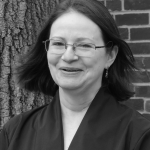 Barbara Westwood Diehl is the founding and managing editor of The Baltimore Review. She has an M.A. in Writing from Johns Hopkins University (fiction and poetry) and works for the Johns Hopkins School of Public Health. Her short stories and poems have been published or accepted for publication in a variety of publications, including Atticus Review MacGuffin, Confrontation, Rosebud, JMWW, Potomac Review, American Poetry Journal, Measure, Little Patuxent Review, SmokeLong Quarterly, Gargoyle, Superstition Review, Word Riot, and Ellery Queen Mystery Magazine.
Barbara Westwood Diehl is the founding and managing editor of The Baltimore Review. She has an M.A. in Writing from Johns Hopkins University (fiction and poetry) and works for the Johns Hopkins School of Public Health. Her short stories and poems have been published or accepted for publication in a variety of publications, including Atticus Review MacGuffin, Confrontation, Rosebud, JMWW, Potomac Review, American Poetry Journal, Measure, Little Patuxent Review, SmokeLong Quarterly, Gargoyle, Superstition Review, Word Riot, and Ellery Queen Mystery Magazine.
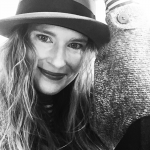 Rae Bryant is the author of the short story collection, The Indefinite State of Imaginary Morals. Her fiction, prose-poetry and essays have appeared in print and online at The Paris Review, The Missouri Review, Diagram, StoryQuarterly, McSweeney’s, New World Writing, Gargoyle Magazine, and Redivider, among other publications and have been nominated for the Pen/Hemingway, Pen Emerging Writers, &NOW Award and Pushcart Prize. She has won awards in fiction from Whidbey Writers and The Johns Hopkins University. She earned a Masters in Writing from Hopkins where she continues to teach creative writing and is editor in chief of The Doctor T. J. Eckleburg Review. She has also taught in the International Writing Program at The University of Iowa. She is represented by Jennifer Carlson of Dunow, Carlson and Lerner.
Rae Bryant is the author of the short story collection, The Indefinite State of Imaginary Morals. Her fiction, prose-poetry and essays have appeared in print and online at The Paris Review, The Missouri Review, Diagram, StoryQuarterly, McSweeney’s, New World Writing, Gargoyle Magazine, and Redivider, among other publications and have been nominated for the Pen/Hemingway, Pen Emerging Writers, &NOW Award and Pushcart Prize. She has won awards in fiction from Whidbey Writers and The Johns Hopkins University. She earned a Masters in Writing from Hopkins where she continues to teach creative writing and is editor in chief of The Doctor T. J. Eckleburg Review. She has also taught in the International Writing Program at The University of Iowa. She is represented by Jennifer Carlson of Dunow, Carlson and Lerner.
Course Content
Short Story: Authentic Voice, PoVs, Tenses and Syntax
-
Syntax and Cadence: Bringing Out Your Artistic Prose
-
Present Tense or Past Tense? Which Is Authentic to Your Narrative?
-
The Art of Syntax and Diction in Creating Scene and Atmosphere: Angela Carter
-
Point of View, Body Narrative and Jamaica Kincaid
-
Narrative Voice with Alice Munro and Ernest Hemingway
-
Using Point of View Shifts to Explore Narratives: O’Connor, McCarthy, Munro and Carver
-
Authentic Voice & F. Scott Fitzgerald’s Advice on “the price” of Being a Writer
- Syntax and Cadence: Bringing Out Your Artistic Prose
- Present Tense or Past Tense? Which Is Authentic to Your Narrative?
- The Art of Syntax and Diction in Creating Scene and Atmosphere: Angela Carter
- Point of View, Body Narrative and Jamaica Kincaid
- Narrative Voice with Alice Munro and Ernest Hemingway
- Using Point of View Shifts to Explore Narratives: O’Connor, McCarthy, Munro and Carver
- Authentic Voice & F. Scott Fitzgerald’s Advice on “the price” of Being a Writer
Short Story: Scene, Character and Dialogue
-
Creating a Scene through a Character’s Perspective
-
Character, Place and Setting: How Much World-Building Is Enough?
-
Character Presentation: Direct Methods
-
Dialogue: Pumpkin, Honey Bunny, the Man, the Girl and the Psychopath
-
Setting Personified: The Yellow Wallpaper
-
Character Presentation: Indirect Methods
- Creating a Scene through a Character’s Perspective
- Character, Place and Setting: How Much World-Building Is Enough?
- Character Presentation: Direct Methods
- Dialogue: Pumpkin, Honey Bunny, the Man, the Girl and the Psychopath
- Setting Personified: The Yellow Wallpaper
- Character Presentation: Indirect Methods

